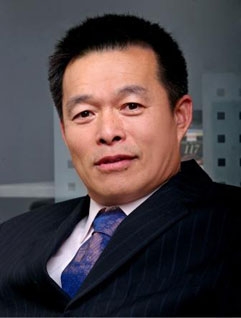Scholar: Communiqué highlights system reform
- By Zhang Rui
 0 Comment(s)
0 Comment(s) Print
Print E-mail China.org.cn, November 18, 2013
E-mail China.org.cn, November 18, 2013
One scholar has pointed out how the communiqué issued after the Third Plenary Session of the 18th Communist Party of China (CPC) Central Committee highlights the establishment and reform of five systems.
|
|
|
Hu Angang [File photo] |
Hu indicated these five establishments and reforms would perfectly sustain the general blueprint mapped out by former President Hu Jintao at the 18th National CPC Congress.
This Third Plenary Session communiqué also specially raised the point of promoting social justice; it is set to be of essential importance to the improvement of people's benefits. "It's human-oriented," he said, "Although we did seek ways to help people live happy lives, this time, the demand is more specific. We not only need to make our economy work more efficiently and profitably, but also need social justice, which means we don't sacrifice people's interests for [the sake of] economic development."
Hu added that the communiqué also notes that the leadership will push forward the modernization of the nation's administration and management. "It is the first time for such a concept to emerge," he said, "We always talked about the physical modernization constructions such as economy and culture. But the communiqué says we have to also modernize our national management system, which will allow the reform to pay more attention to systematization, integrality and cooperation. It's like providing fresh air. Without the fresh air, everyone will suffer."
The communiqué defined China's basic economic system as a mixed-ownership economy, allowing diverse forms of ownership to develop side by side with the public ownership remaining dominant. This system has been in place since it was first developed in the 1990s. "After the reform and opening up, China's diversity has shown. We gradually develop private enterprises, foreign invested enterprises, individual businesses and more. The mixed economy is very important for China's development and it creates jobs for China. In the past decade, it has created more than 100 million jobs in urban and town areas alone. Private enterprises even create more jobs than State-owned enterprises do." Hu said.
He also pointed out that the central leading group in the comprehensively deepening reform is an important structural setting, which will not only oversee economic reform but also all the side-aspects involved. The group will also prompt local governments to establish similar divisions on a local level to ensure the deepening reform.
"The communiqué is an upgraded version of the reform and opening up policy. It reflects the nature of China's reform; that is self-reform, self-innovation and self-perfection. Even in the United States, the government doesn't say they are going to reform. When the government shuts down, the public service shuts down. So the Chinese government will be the 'visible hand' to take on the jobs of guidance, adjustment and control, and through constant reform, this hand can truly serve the public."







Go to Forum >>0 Comment(s)